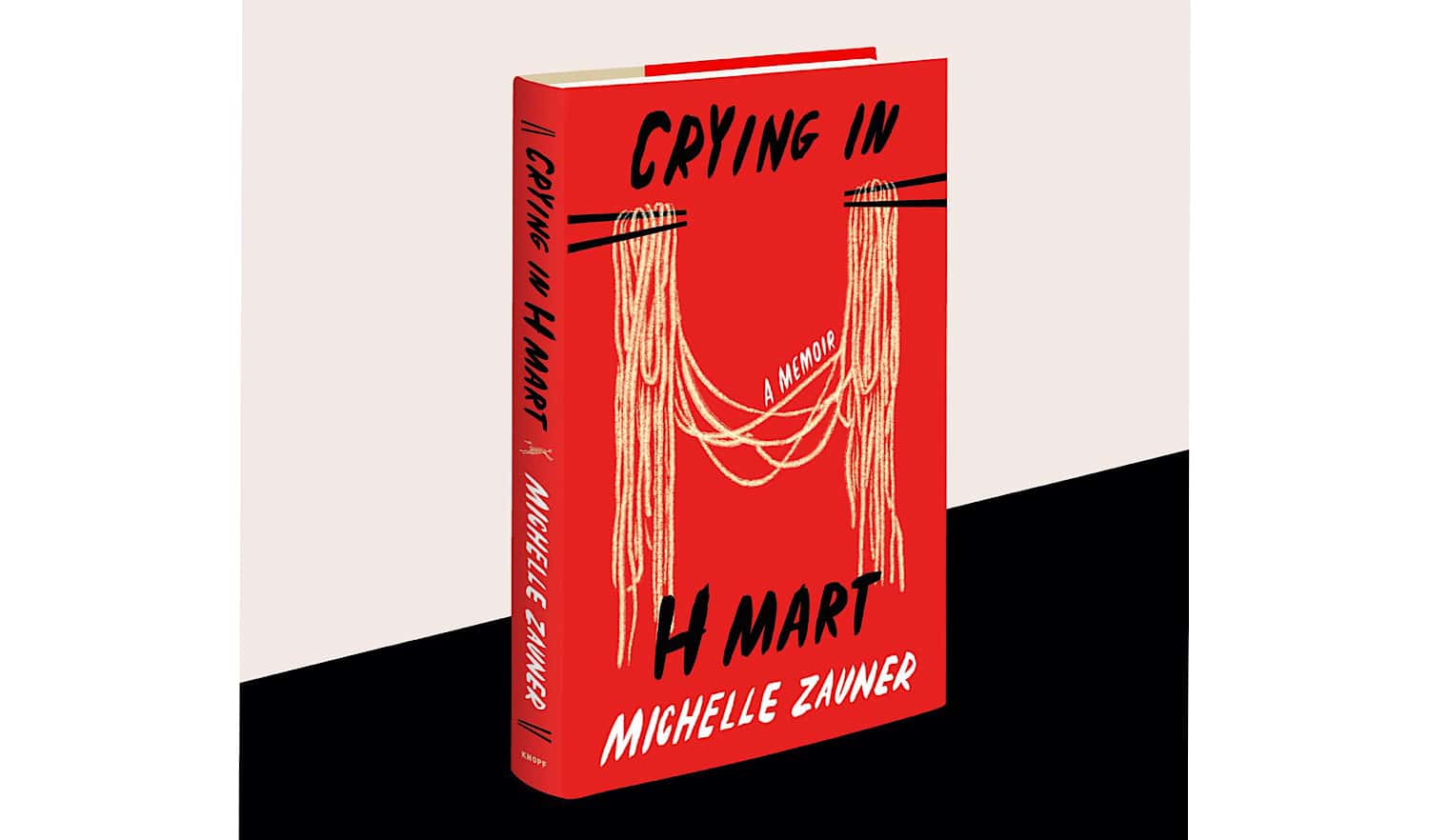BRIANNA HIRAMI WRITES — Nobody is shocked to hear that you will have many difficult relationships in life that may cause fights, breakups, and pettiness. There are many romance novels and reality T.V. shows that warn you about the strains that a person can have with a romantic partner, but mainstream entertainment lacks a genre that warns you against the scars that an Asian mother may leave upon you. As a person with an Asian mother, a manual may have been helpful while going through my own high school years.
Author Michelle Zauner conveys the difficulties that she and her mother have faced in her memoir, Crying in H Mart: A Memoir (2021) before her mother passed away from cancer. Despite all the strenuous arguments that these two women have had with each other, Michelle repeatedly says that no one will love her more, nor connect her to Korean culture more, than her mom. Once her mother passes away, Michelle struggles. For Michelle, the loss of her mother did not just mean familial loneliness, it also symbolized a waning connection to Korean culture. How can a person feel connected to their native culture when the biggest catalyst for connection is no longer in their life?
Michelle Zauner is a Korean-American musician, director, and writer who is best known for being the lead singer in the band, Japanese Breakfast, and for her memoir hitting the #2 spot on The New York Times best-seller list for nonfiction. Crying in H Mart: A Memoir, is being adapted into a movie by Orion Pictures.

Growing up, Michelle and her mother did not always have the healthiest relationship. Zauner writes that
“[Her] [Mother’s] [love] was tougher than tough love. It was brutal, industrial-strength. A sinewy love that never gave way to an inch of weakness. It was a love that saw what was best for you ten steps ahead, and didn’t care if it hurt like hell in the meantime.”
Their relationship was especially brutal when Michelle was a teenager. The two fought over nearly everything, from the showy opacity of Michelle’s makeup to her dream of making music for a living. Their relationship suffered because of their conflicting desires, but despite the constant nitpicking and control that her mom wanted over Michelle, Michelle wanted nothing more than to impress her mother. When she went off to college and gained space from her mother, their relationship became healthier.
Zauner writes: “My mother had either finally given up, conceding in her efforts to try to shape me into something I didn’t want to be, or she had moved on to other subtler tactics, realizing it was unlikely that I’d last another year in this mess before I discovered she was right all along. Or maybe the 3000 miles between us had made it so she was just happy to be with me.”
As Michelle got older, she and her mother began to understand one other. Her mother would send her pictures of her art from art class, they would bathe together at the bathhouse, and buy groceries at H Mart together among other bonding activities.
When Michelle was 25, she learned that her mother had stomach cancer. She quickly put her own life on hold and dedicated her existence to caring for her mother. While undergoing chemotherapy, Michelle kept track of her mother’s nutrition log as her appetite began to decline, bathed her, attempted to cook Korean food for her, stayed with her in the hospital, and even had a wedding just to guarantee that her mother would be there. When her mother passed away, everything reminded her of her mother. She no longer felt joy or pleasure.
This heartfelt memoir is not only about a Korean woman who mourns the loss of her mom, but it is also about a woman who feels the loss of her own Korean identity. Throughout her life, and especially after her mother passes away, Michelle struggles and constantly doubts her “Asianness.” For Michelle, her mother tied her into her Korean background by showing her the culture, food, and Korean traditions. Crying in H-Mart: A Memoir is an exceptional example of the common struggle Asian-Americans undergo when they feel like they are losing a sense of identity. For many Asian-Americans, there is often a struggle with maintaining our “Asianness,” and also expressing that we are Americans at the same time. We must reckon with our hyphenated identity, that of being Asian-Americans – neither American nor Asian, but inextricably tethered to both.
Zauner explains her identity as “Something that was always in the hands of other people to be given and never my own to take, to decide which side I was on, whom I was allowed to align with. I could never be both worlds, only half in half out, waiting to be ejected at will by someone with greater claim than me… For a long time I had tried to belong in America…but in that moment all I wanted was to be accepted as a Korean…”
Through all her struggles Michelle remained optimistic. Today, her music career has taken off and she performs with her band even in Korea. She remains close with her family, husband, and band to keep her heart afloat without ever losing sight of the important lessons her mother had taught her. Hers is a strikingly moving memoir.

Book reviewer Brianna Hirami is a recent graduate of Loyola Marymount University with a major in English and a minor in Asian and Pacific Studies. Brianna will attend LMU again to receive her Literature Masters.
*Edited by book review editor-in-chief, Ella Kelleher.

